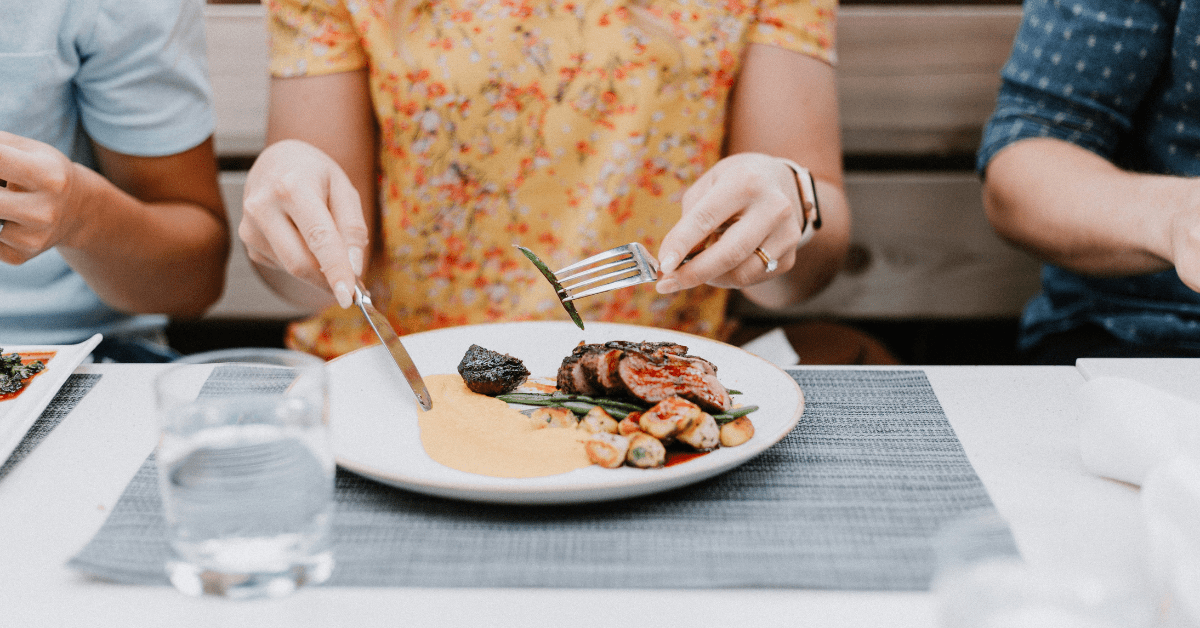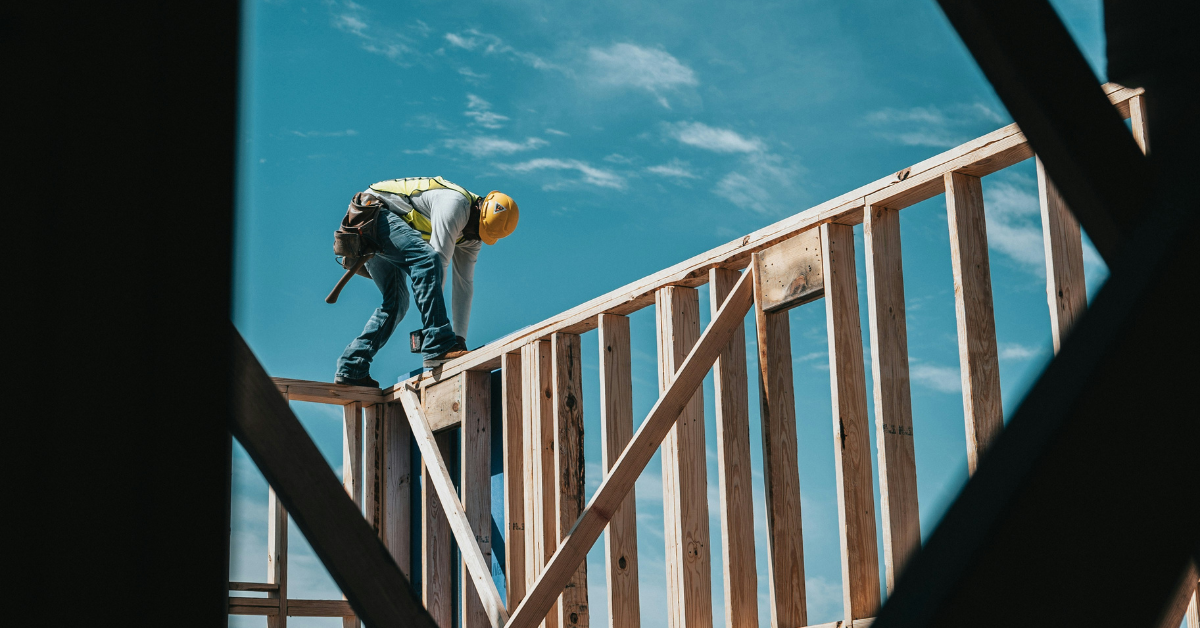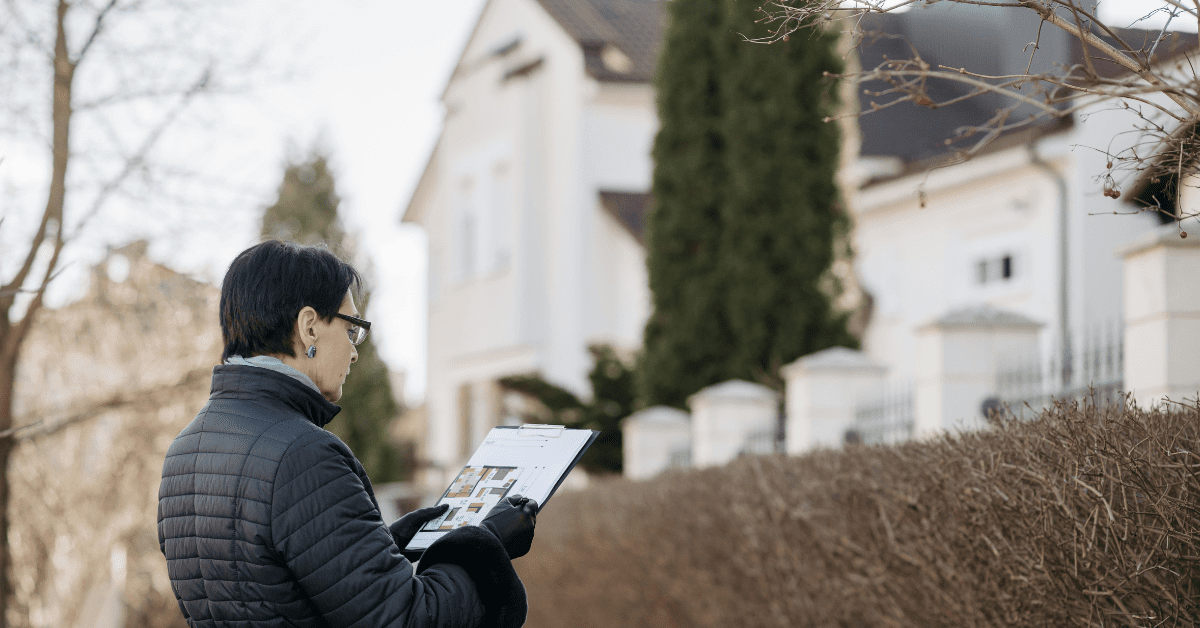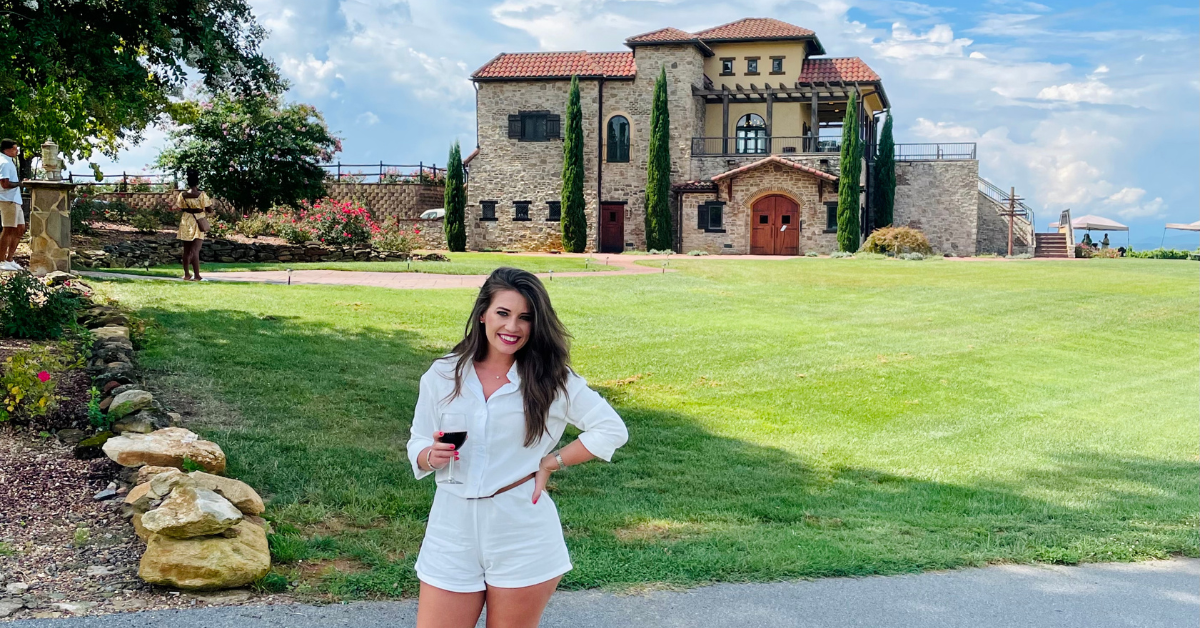THE BLOG
THE BLOG
*This website uses affiliate links which may earn a commission at no additional cost to you. As an Amazon addict and Associate, I earn from qualifying purchases, but I'm only recommending products I love!
Browse More Blog Posts:
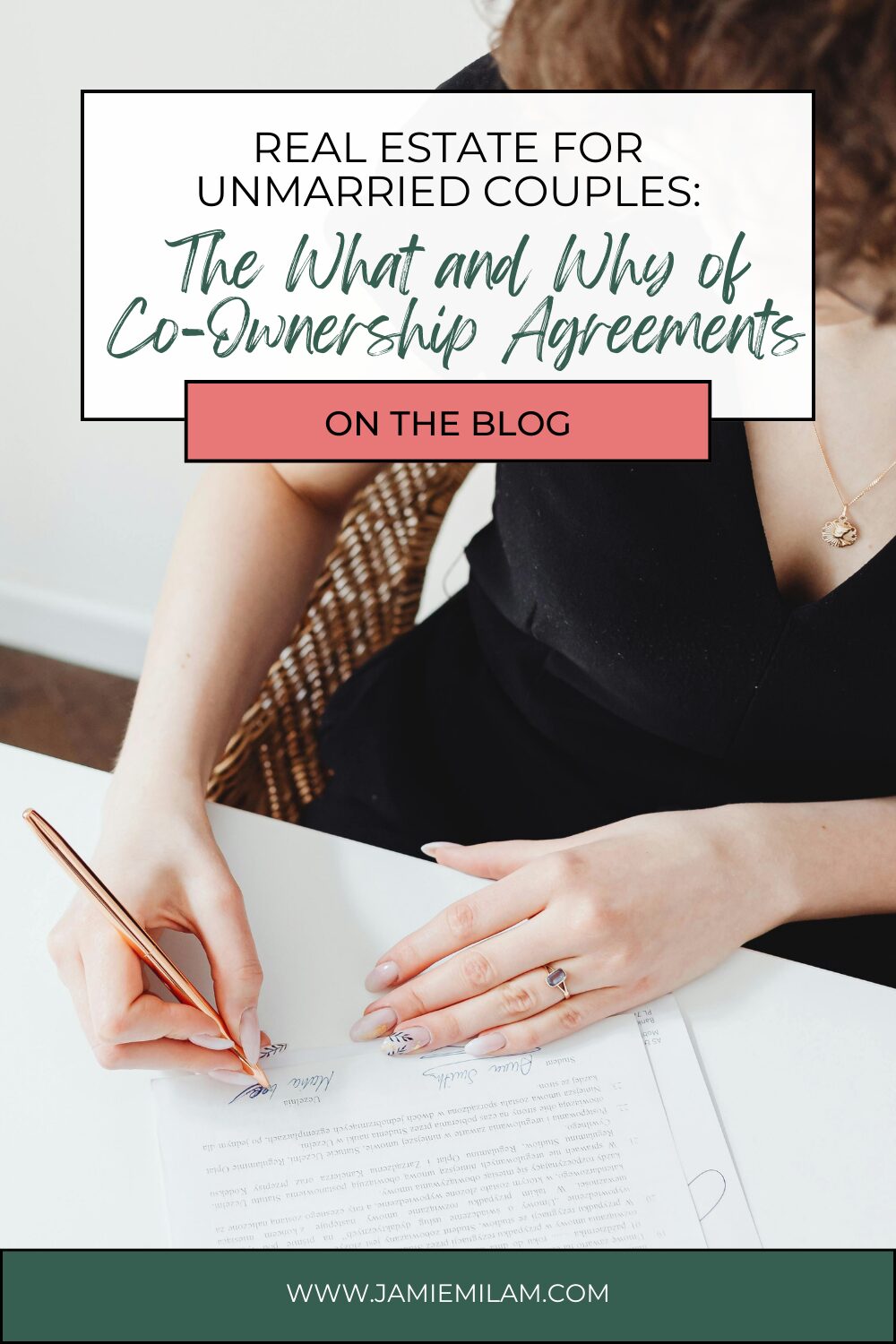
Real Estate for Unmarried Couples: The What and Why of Co-Ownership Agreements
Author: Jamie Milam
Date: September 19, 2024
Owning property is a common goal for many couples. It can be a strong financial investment and part of your lifestyle goals and plan.
But acquiring such a large asset doesn't come without some risks—especially when it comes to a potential break-up.
I recently had a past client reach out to discuss her new real estate goals so we could consider the right strategy. I first met her when she hired me to sell the home that she had fought to keep in her divorce. She'd remained in her marital home for a couple of years after the divorce was finalized, but was now ready to move on to a new chapter.
So, I helped her sell that home and purchase a new one. She's since built some equity on that purchase and came back to chat with me about using the equity as a down payment to buy a house with her new partner. She's ready to build her life with him but, this time, is planning to do so without the marriage part.
It's an interesting scenario: The equity from a new home with her partner was possible because of the equity from the old home she worked so hard to keep in her divorce agreement. But now she's wanting to use that equity for a new home with a new partner she's not married to.
"Absolutely!" I said. Followed by, "How important is it to you that you protect that initial investment if you're looking to use your hard-earned (and fought-for) equity for the down payment?"
Most people are aware that dividing a home or property asset during a divorce can be a tricky and complex process (which is why prenups and proactive planning are key!). But did you know that it's equally important to protect yourself in this regard even if you're not married? And, further, there are legal options to help you do so?
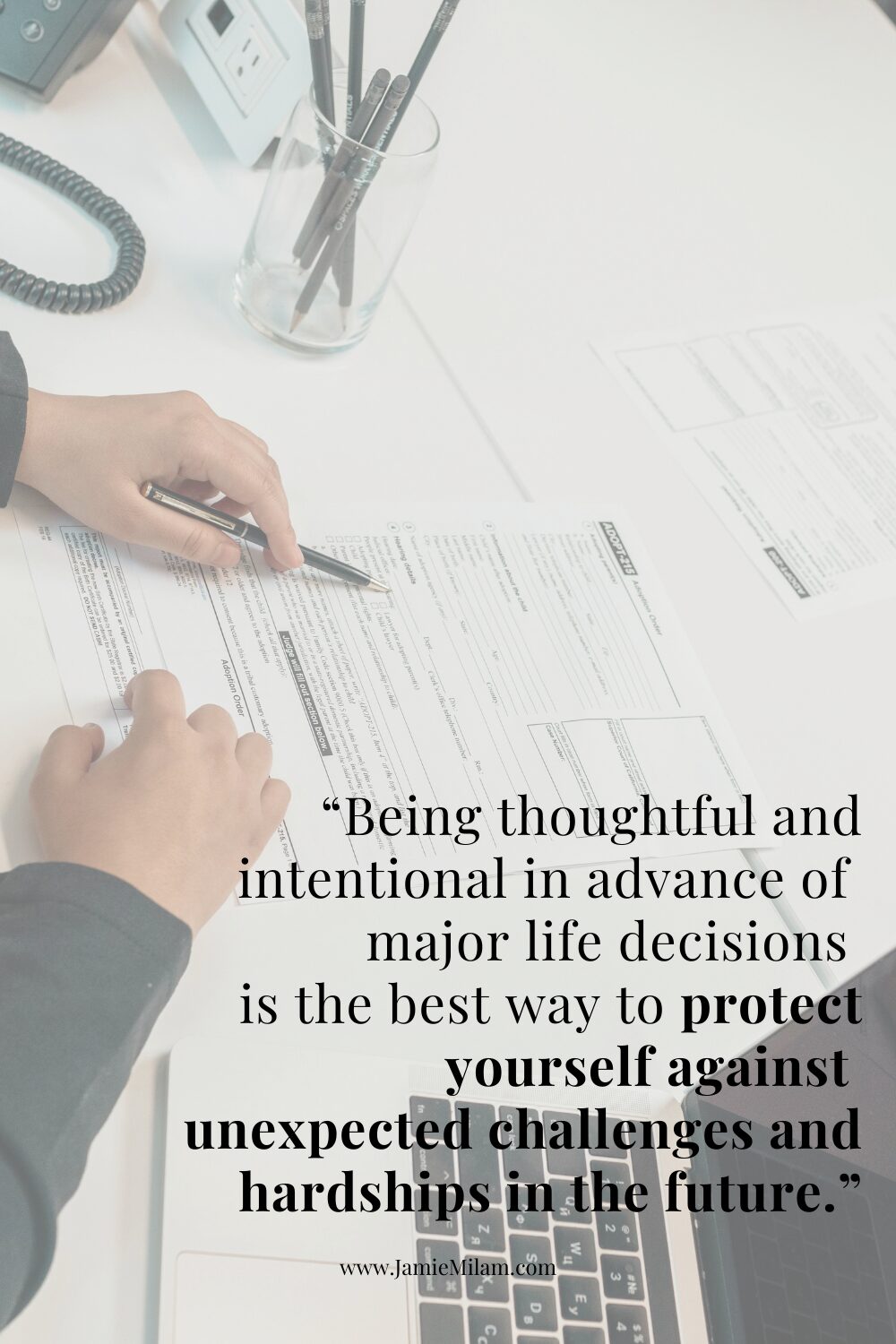
Yes—that's right. Unmarried couples are wise to protect real estate assets through co-ownership agreements.
You see, I'm all for women moving forward in their life. And I'm so glad she's found joy in a new relationship. As her real estate advisor, and friend, I just want to make sure she's aware of her options to best protect her financial security. I don't want to see her experience any turmoil similar to her divorce if it's avoidable.
Because as a divorceé myself, and as her friend, I know that she didn't go into her marriage expecting it to end in divorce. We never do—marriage or not. What she wants to accomplish—buying a house with her partner—is completely reasonable. And so is wanting to proactively put measures in place to protect her financial investment.
That's why we're talking about co-ownership agreements. Here's why they are so important, plus everything you need to know about them to get started. focus on matters at hand. You can expect there will be a level of emotional hijacking. So prepare for it—know what your triggers are and focus on how to manage them.
The Case for Co-Ownership Agreements
The first thing to consider is that proactive is always better. Being thoughtful and intentional in advance of major life decisions (Ahem. Marriage, divorce, real estate purchases), is the best way to protect yourself against unexpected challenges and hardships in the future.
And a co-ownership real estate agreement is exactly that—a proactive choice to financially protect yourself when buying real estate with a partner you're not married to.
Many people want to make big decisions and purchases with a partner without getting married. There could be many reasons for it, and—good news—there are actually many ways to do it.
Tiffany Byrd, family law and estate attorney, joined us on episode 79 of Divorced and Determined AF to discuss these legal options to protect assets. In her estimation, the law does a pretty decent job of allowing people to create for themselves what they want. There are options for people who want to build a life with someone without that legal marriage commitment.
With legal options available to unmarried couples, you can protect your financial assets. Say you're buying a home with a new partner, but, like my client, you're using the equity from the sale of your last home—you want to protect that! Or, you're using earned income to cover monthly payments, and your partner's situation changes—can you take on more each month? Maybe your credit isn't great now or you don't have enough job history yet due to your divorce and the mortgage will only be in your new partner's name—will you still have rights to it? What happens if you break up—who keeps the house? Can you sell it? Would you be able to buy them out?
Ultimately, a co-ownership agreement protects your past financial assets and your future financial prospects. Avoiding a legal agreement leaves you vulnerable in the case your relationship significantly changes or ends.
Co-Ownership Agreements 101: Key Details to Know About
Co-ownership agreements can go by several different names, but this is a good catch-all term. They can be compared to a pre-nuptial agreement (for couples who are getting married) or a post-nuptial agreement (for couples who are already married), though they are not the exact same. Co-ownerships cover a lot of the same areas but sit under different statutory rules—they are considered contract law.
Many people don't know about co-ownership agreements and often think there are no protections for unmarried couples. But, these agreements are available to anyone and should be utilized more options.
Co-ownership agreements are very practical. They can determine things like:
- What happens to the house if we split up?
- If we separate, do I get my initial investment back first?
- What would a potential buy-out look like?
- Who is responsible for mortgage payments?
- How will we deal with renovations and improvements on the home?
- Can parties change the way interest is handled?
- How would the proceeds of a sale get divided?
- Whose name is on the mortgage and how is the property title held?
- How will we maintain the property?
- Who pays for utilities and upkeep costs?
- What happens in the event of one person passing away?
If you don't have an agreement in place, breaking up and deciding to sell a shared house might create the same level of complex conflict that a divorce can.
To avoid that, consider a co-ownership agreement. Here's what you need to know.
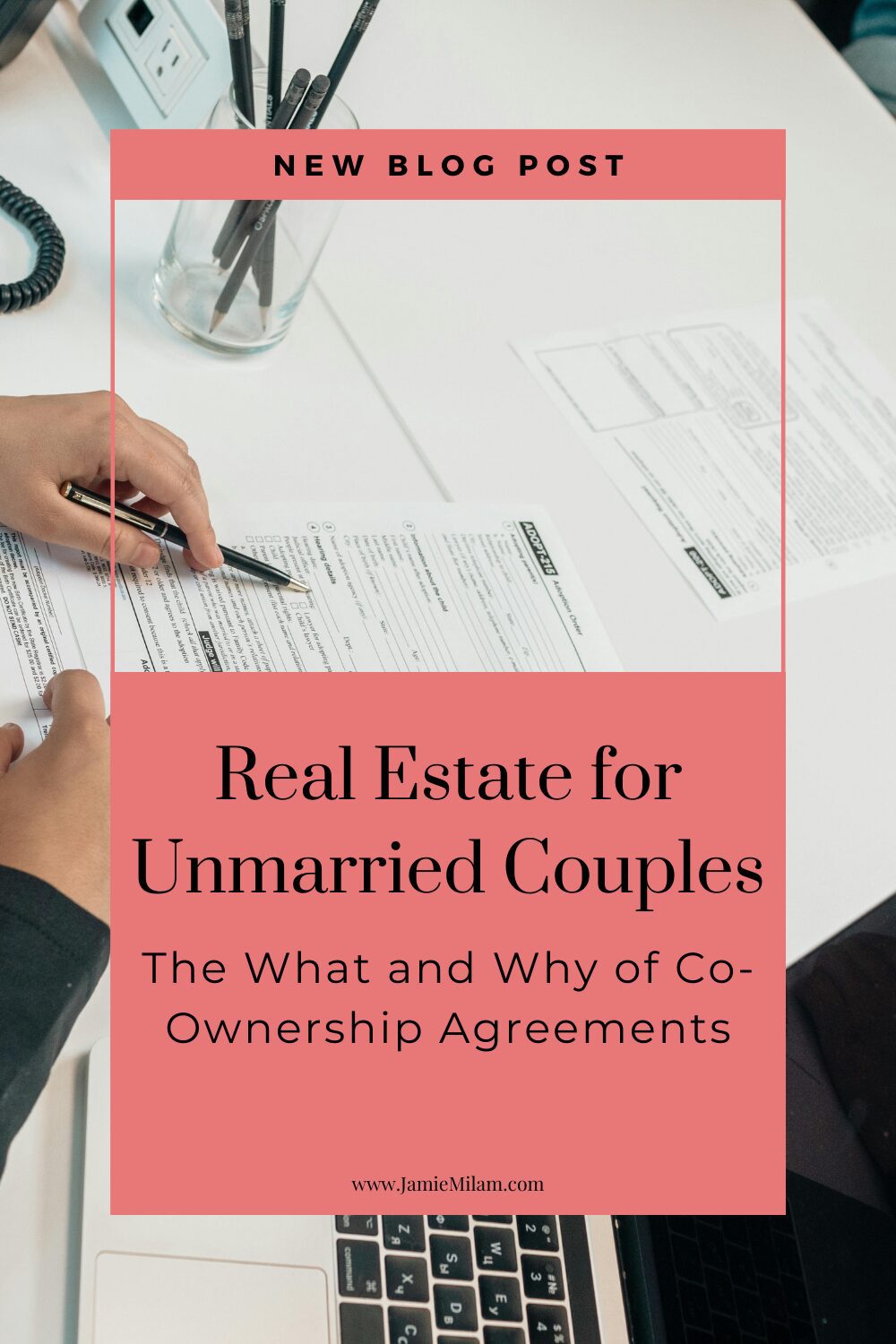
1. Timing Matters
When it comes to a co-ownership agreement, the earlier the better. Getting everything out in the open from the start is the ideal way to approach the situation. So, as soon as you start thinking about purchasing property together, start talking about an agreement and what it might look like.
If you do end up waiting a bit, the second best time to have an agreement in place is before you close on the sale, or any other milestone where you can't course-correct and change things.
2. Clarity is Key
If you end up not putting an agreement in place before you close on the property, you can still do so after the fact. The success of it, however, hinges on you both being on the same page and in agreement to put this legal protection in place for you both.
With this in mind, remember that clarity is so important in this process. It might take time to get into the weeds of everything, but it's necessary to do so. You'll need to have exact details and information about how the home purchase transpired. Don't shy away from the details, both with your partner and legal professionals—get all the information on the table and prioritize clarity throughout the process.
3. Introduce the Topic Early
Many people may feel awkward or nervous about approaching this kind of conversation. But the reality is that a co-ownership agreement benefits both parties and, therefore, doesn't need to be so taboo.
The best way to remove uncertainty or awkwardness around the conversation is to have it early on. You might approach it something like this: "I'm so excited to start looking for houses with you. As we begin the process, I want us to start discussing an agreement that protects both of us in the event of any changes down the road. I want to do this now, rather than in a position when big life changes are happening—let's deal with it now on the front end."
The earlier you can start the conversation, the better it'll go. Start early, and give you and your partner time to go through everything that needs to be talked about.
4. Focus on More Than Breaking Up
One hesitation around this entire topic is that it's too focused on breaking up... which no one wants to think about. And while that is a big part of the conversation—what happens to your home if you the two of you were to go your separate ways —it's not the only thing a co-ownership agreement is useful for.
A good agreement will equally cover topics like:
- How the property title is legally held.
- Who is responsible for what payments, fees, or expenses (down payment, mortgage payments, utilities, closing fees, etc.).
- What happens if one party passes away.
- How renovations and upgrades are handled.
You don't have to view co-ownership agreements in a pessimistic view, like you're anticipating breaking up. Instead, they're a holistic strategy to protect you from the unexpected realities of life. Think of it like insurance. Similar to how you have insurance on your car, you have insurance on your home, and you hope to never have to use it. But in the event that you do, you're really glad that it's there.
5. Get Creative
While there are certainly some standard things to include in an agreement, there is still a lot of room to get creative with it. You are ultimately in control of it and can build something that works for your life, your situation, and your future goals.
Together with your partner, consider what's specific to your relationship that should be included in your agreement. You should also take time independently to consider your personal finances, future goals, concerns, and more—think about it individually and then come together to discuss how it all plays out in your agreement.
6. Revisit Your Agreement
Your agreement should be revisited with any changes to the family dynamic. This might include events like having children, parents involved in the process, or financial and work-related changes. And, if you decide to get married, you may wish to transition this to a pre-nuptial agreement.
You don't want to just "set it and forget it," but keep coming back to make sure that things are relevant for the stage you're in.
A co-ownership agreement protects your future. It's not about being pessimistic about your relationship, but realistic in making major life decisions together with someone else. If you can't have an open conversation about this with your partner, you may choose to hit pause on making a decision to buy real estate together until you are both aligned on your goals.
If you've gone through a divorce in the past, it may be easier for you to be creative with what you include in your agreement. Or you may even decide that all you want to do upfront is put protection in place to recoup your initial down payment that you contributed to the purchase of your home so that if things didn't work out, you knew you'd have that to fall back on financially (and legally!). If this is your first home purchase, a consultation could be a big eye-opener to what all is possible to include. After all, you don't know what you don't know until you know it. Take it from those of us who have gone through the frustrating periods of having to split assets when you're barely friends with the person—acting proactively will save a lot of stress in the future.
Take care of yourself—get a pre-ownership agreement if you're buying real estate with your partner. If you want to dive deeper into this topic, listen to episode 79 Divorced and Determined AF.
To protecting your financial assets,

Save this post to come back to or share with a friend!

About Me
I'm Jamie Milam, a determined AF woman who's embraced life after divorce by finding peace through self-awareness, intentional decision-making, and thrilling new travel adventures.
As a Realtor® in Charlotte, NC (and your connection to top agents nationwide), I’m passionate about guiding you through your homeownership and design goals—while also helping you create space for the things you love. My mission is to empower you to create a life of alignment too - at home, abroad, and within.
Whether it’s through real estate tips, home design inspiration, or solo travel experiences for divorced, independent women, I hope this space encourages you to discover deeper self-awareness and build a life that aligns with your passions and needs.
Have you scoped the podcast series that empowers women to make aligned decisions in a divorce?
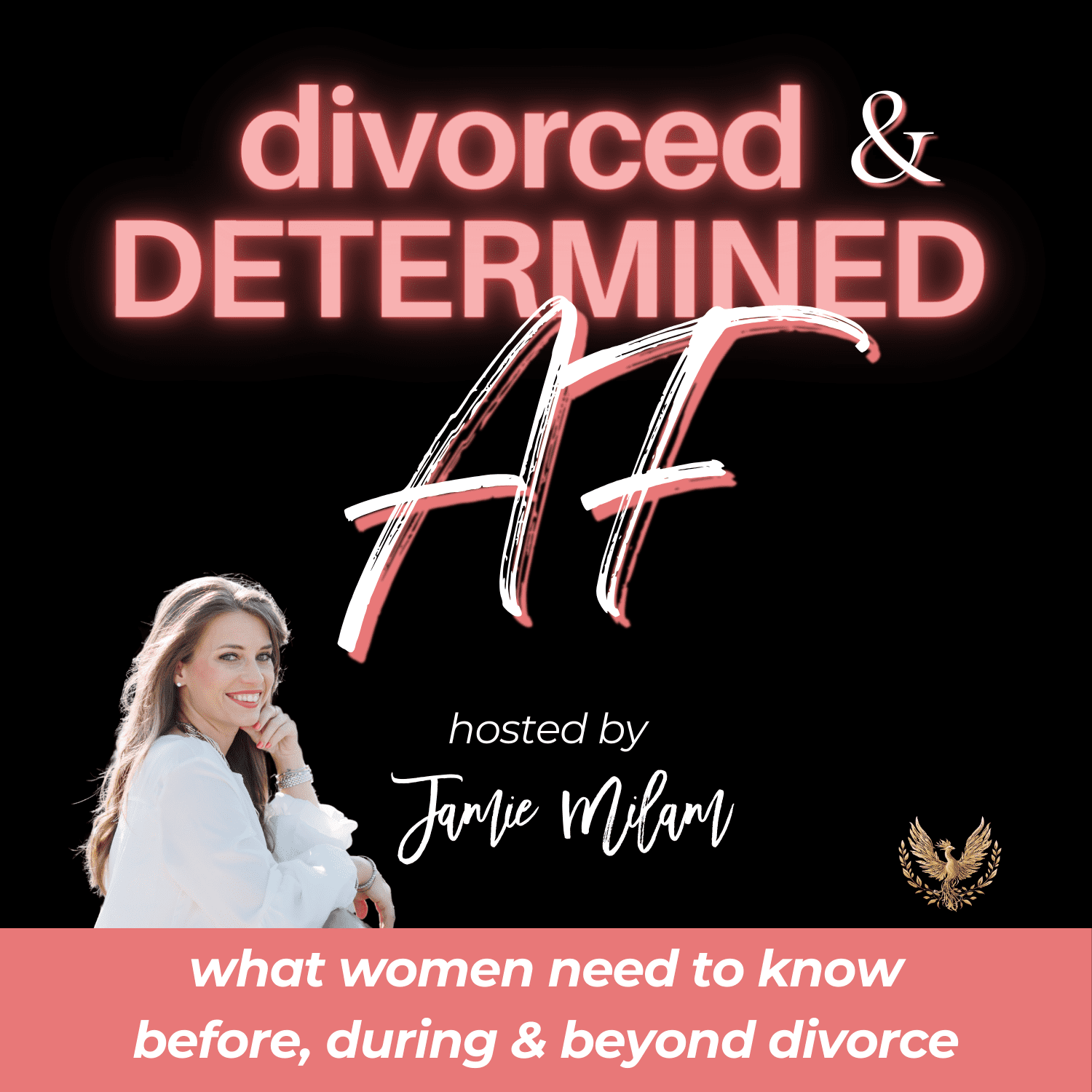
Your Free Charlotte City Guide

Jamie Milam is a Realtor® in the Charlotte, NC area, licensed in both NC & SC, and has the ability to refer you to a number of agent partners across the nation, regardless of where you may live. She is an enthusiast for the power of awareness and believes it can be used in all facets of life to support aligned living.
**Disclosure** This post may contain affiliate links and they are at no additional cost to you, though I may earn a small commission. Don't worry, I only recommend products or services that I have tried or believe would be of great value to you! All opinions expressed are those of my own!
Recent Posts
There's More ▾
There's More ▾
Let me share the goods!
Come from contribution, that's a motto I've valued for years! So... that's exactly what I am to provide you, straight into your inbox each week! No fluff and all open-book. Inspiring you to practice awareness, value your authentic self, and implement strategic actions so you can create alignment in your world to live the life you desire and deserve!

